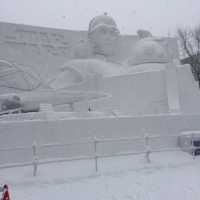Located in Fenglin Valley, originally built in the Ming Jiajing years, it floated and sunken in the historical occasion, after several winds and frosts, it was in disrepair and dilapidated. Destroyed, the current temple is newly built, the original ancestor tower outside the temple, and now the rebuilt octagonal seven-story pagoda. Now, the whole temple is complete, there are mountain gates, very powerful, and there are more tourists.
Fenglin Temple Review
4.5 /54 Reviews






3/5
Fenglin Temple
Posted: Oct 9, 2014
Like
Recommended Attractions at Popular Destinations
Bangkok attraction near me | Tokyo attraction near me | Manila attraction near me | Hong Kong attraction near me | Taipei attraction near me | Seoul attraction near me | Los Angeles attraction near me | New York attraction near me | Shanghai attraction near me | Kuala Lumpur attraction near me | Osaka attraction near me | Shenzhen attraction near me | Singapore attraction near me | London attraction near me | Guangzhou attraction near me | San Francisco attraction near me | Beijing attraction near me | Macau attraction near me | Bali attraction near me | Paris attraction near me | Orlando attraction near me | Ho Chi Minh City attraction near me | Jakarta attraction near me | Chicago attraction near me | Phuket attraction near me | Toronto attraction near me | Fukuoka attraction near me | Istanbul attraction near me | Dallas attraction near me | Cebu attraction near me
Popular Attractions
The Egyptian Museum in Cairo | Dujiangyan Irrigation System | Masjid an_nur kampung sentosa jaya batu 3, | Hong Kong Disneyland | Montréal Underground City | Hailing Island | Universal Orlando Resort | Prince's Island Park | Century Park | Nagoya Castle | Royal Canadian Mint | Sunni punda | Recinte Modernista de Sant Pau | Hue Historic Citadel | Nusa Lembongan | Zoo La Palmyre | The Ultimate Kids Fishing Charters | Vann Garden | Cavtat Old Town | Rotermann Quarter | Shiv mandir | Azzizah Garden | Unisa Art Gallery | Musee du Jambon de Bayonne | Lobelia Park | HATIKVAH BAPTIST CHURCH | Kalika Temple | Derev'yana Fortetsya | South Breitenbush Trailhead | Thunderbird Park
Payment Methods
Our Partners
Copyright © 2024 Trip.com Travel Singapore Pte. Ltd. All rights reserved
Site Operator: Trip.com Travel Singapore Pte. Ltd.
Site Operator: Trip.com Travel Singapore Pte. Ltd.



